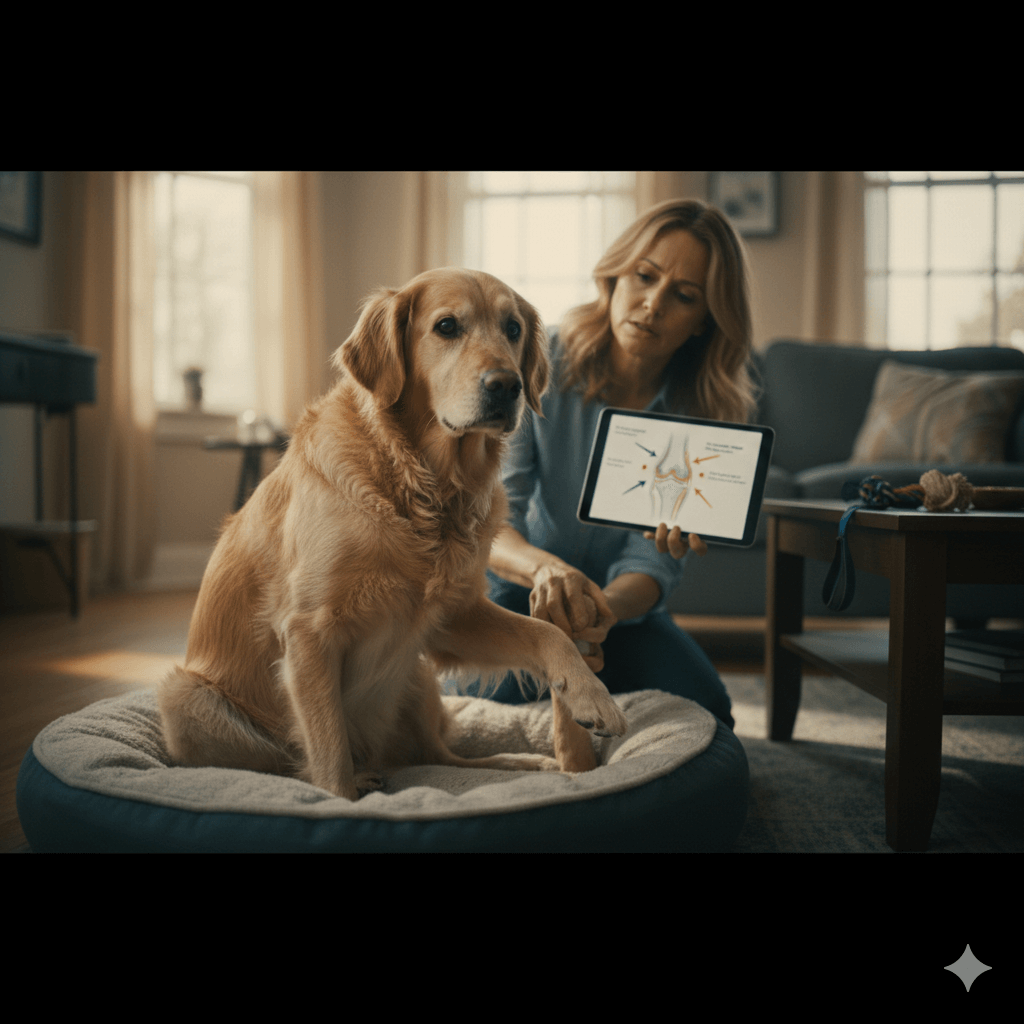Why Does My Dog Smell Like Metal? Understanding the Mystery Behind the Metallic Scent
Dogs are known for their unique scents, but when your furry friend starts to smell like metal, it can be both surprising and concerning. While some odors are normal and harmless, others might indicate an underlying issue that requires attention. In this blog post, we’ll explore the possible reasons behind this metallic scent, from common causes to more serious health concerns. Whether you’re a seasoned dog owner or a first-time pet parent, understanding why your dog smells like metal can help you ensure their well-being and maintain a harmonious home environment.
Common Causes of Metallic Smell in Dogs
Before jumping to conclusions, it’s essential to understand that not all metallic odors are alarming. Here are some common reasons why your dog might have this unusual scent:
Saliva and Oral Health
A dog’s saliva can sometimes have a metallic tang, especially if they’ve been chewing on objects or licking themselves excessively.Dietary Factors
Certain foods or supplements in your dog’s diet may contribute to a metallic smell. For example, high-protein diets or iron-rich foods can alter their natural scent.Environmental Exposure
If your dog has been rolling in dirt, mud, or other substances, these can leave behind a metallic odor.Natural Skin Secretions
Dogs have sweat glands in their paws and skin that release oils. These secretions can sometimes carry a metallic undertone.Behavioral Habits
Excessive licking or chewing due to anxiety or boredom can lead to a buildup of saliva, which might emit a metallic smell.
While these causes are generally harmless, persistent metallic odors could signal something more serious. Always monitor your dog’s behavior and consult a vet if the smell doesn’t go away.
Health-Related Reasons for Metallic Smell in Dogs
If your dog’s metallic scent persists despite addressing common causes, it might be time to consider potential health issues. Here’s what you should know:
Infections
Bacterial or fungal infections on the skin or in the ears can produce unusual odors, including a metallic smell.Dental Problems
Gum disease, tooth decay, or oral infections can cause bad breath with a metallic tinge.Internal Bleeding
In rare cases, a metallic smell could indicate internal bleeding or gastrointestinal issues. This is a serious condition that requires immediate veterinary attention.Kidney or Liver Issues
Organ dysfunction, particularly in the kidneys or liver, can result in abnormal body odors, including metallic scents.Diabetes
Dogs with unmanaged diabetes may develop a sweet or metallic smell due to metabolic changes.
If you suspect any of these health-related causes, don’t delay in seeking professional advice. Early diagnosis and treatment can make a significant difference in your dog’s quality of life.
Check this guide 👉Why Dogs Kick Their Back Legs: Best 7 Expert Tips!
Check this guide 👉Why Does My Dog Roll on His Back? Best 7 Behavior Tips!
Check this guide 👉Why Is My Dog Shaking After a Vaccine? Best 7 Health Tips!

Possible Causes | Solutions |
|---|---|
Saliva and Oral Health | Regular dental checkups and teeth cleaning |
Dietary Factors | Adjust diet or consult a vet for dietary advice |
Environmental Exposure | Bathe your dog regularly to remove dirt |
Infections | Treat infections with prescribed medications |
Kidney or Liver Issues | Schedule a vet visit for blood tests |
How to Prevent Metallic Smell in Dogs
Preventing a metallic smell in your dog involves a combination of good hygiene, regular vet visits, and attentive care. Here’s what you can do:
Maintain Oral Hygiene
Brush your dog’s teeth regularly using pet-safe toothpaste to prevent dental issues.Monitor Their Diet
Ensure your dog’s diet is balanced and free from ingredients that might cause unusual odors.Regular Grooming
Bathe and groom your dog frequently to keep their coat and skin clean and healthy.Check for Behavioral Changes
Look out for signs of excessive licking or chewing, which might indicate stress or discomfort.Schedule Routine Vet Visits
Regular checkups can help catch health problems early before they escalate.
By incorporating these practices into your routine, you can minimize the chances of your dog developing a metallic smell and ensure their overall well-being.
When to Seek Veterinary Help
Knowing when to consult a vet is crucial for your dog’s health. Here are some scenarios where professional intervention is necessary:
Persistent Odor
If the metallic smell doesn’t go away after addressing common causes, it’s time to see a vet.Unusual Behavior
Lethargy, loss of appetite, or changes in behavior can accompany a metallic smell and indicate underlying issues.Visible Symptoms
Skin rashes, redness, or swelling paired with a metallic odor may point to infections or allergies.Bleeding or Discharge
Any signs of bleeding, whether from the mouth, nose, or other areas, warrant immediate attention.Weight Loss or Vomiting
These symptoms, combined with a metallic smell, could suggest organ dysfunction or other serious conditions.
Your vet is the best person to diagnose and treat any issues your dog may be facing. Don’t hesitate to seek their expertise when needed.
Signs That the Metallic Smell Might Be Serious
While many metallic odors are harmless, some signs can indicate a more serious underlying issue. Pay attention to these red flags that suggest your dog needs immediate care:
Unexplained Weight Loss
Sudden or gradual weight loss without changes in diet or activity levels can signal metabolic or organ-related problems.Excessive Drooling
If your dog is drooling more than usual and the saliva has a metallic smell, it could point to oral or digestive issues.Pale Gums
Pale or discolored gums may indicate anemia or internal bleeding, both of which can cause a metallic odor.Frequent Vomiting
Persistent vomiting, especially if accompanied by blood, is a warning sign that should not be ignored.Lethargy or Weakness
A noticeable lack of energy or difficulty moving can suggest systemic problems requiring veterinary intervention.
If you notice any of these symptoms alongside the metallic smell, it’s crucial to seek professional help promptly. Early detection and treatment can make all the difference for your dog’s health.
Steps to Identify the Source of the Metallic Smell
To determine why your dog smells like metal, you’ll need to investigate systematically. Here are some steps to help you pinpoint the source:
Inspect Their Coat and Skin
Run your hands through their fur to check for dirt, rashes, or unusual discharge that might be causing the odor.Examine Their Mouth
Look for signs of dental issues such as tartar buildup, inflamed gums, or broken teeth.Observe Their Behavior
Take note of any changes in eating habits, grooming routines, or playfulness that might provide clues.Check Their Environment
Investigate areas where your dog spends time to see if they’ve come into contact with substances that could cause the smell.Review Recent Changes
Consider whether you’ve introduced new foods, supplements, or household products that might be contributing to the odor.
By following these steps, you can gather valuable information to share with your vet, making it easier to diagnose and address the issue.
Ways to Support Your Dog’s Overall Health
Preventing unusual odors like a metallic smell starts with maintaining your dog’s overall health. Here are some proactive measures you can take:
Provide a Balanced Diet
Feed your dog high-quality food that meets their nutritional needs and avoids unnecessary additives.Encourage Regular Exercise
Daily walks and playtime help keep your dog physically fit and mentally stimulated.Keep Their Living Area Clean
Regularly clean your dog’s bedding, toys, and food bowls to prevent the buildup of bacteria or odors.Stay on Top of Vaccinations
Ensure your dog is up-to-date on vaccinations and parasite prevention to avoid health complications.Build a Strong Bond
Spend quality time with your dog to understand their habits and detect any changes early.
By prioritizing your dog’s well-being through these practices, you can reduce the likelihood of unexpected issues and ensure they live a happy, healthy life.
FAQ
Is it normal for my dog to smell like metal occasionally?
Yes, occasional metallic smells can be normal, especially after eating or playing outdoors. However, persistent odors may indicate a problem.
Can my dog’s diet cause a metallic smell?
Absolutely. High-protein or iron-rich foods can sometimes lead to a metallic scent.
Should I be worried if my dog smells like metal?
Not immediately, but if the smell persists or is accompanied by other symptoms, it’s wise to consult a vet.
How can I improve my dog’s oral hygiene?
Brush their teeth regularly, provide dental chews, and schedule routine dental cleanings with your vet.
What health issues can cause a metallic smell in dogs?
Possible issues include infections, dental problems, internal bleeding, kidney or liver dysfunction, and diabetes.
Final Thoughts: Staying Alert for Your Dog’s Well-Being
Understanding why your dog smells like metal is an important step in ensuring their health and happiness. While some causes are harmless and easily resolved, others may require professional attention. By staying vigilant and proactive, you can address potential issues before they escalate. Remember, your dog relies on you to keep them safe and healthy. Regular grooming, a balanced diet, and routine vet visits are key to maintaining their well-being. With proper care, you can enjoy many happy, odor-free years together!
Dog Seizure Symptoms: Best 7 Expert Tips! – Learn to spot signs, respond effectively, and manage seizures in dogs for a healthier, happier life.
Carprofen Dosage for Cats: Best 7 Expert Tips! – Learn safe dosing, risks, and alternatives to manage pain and inflammation in cats effectively.
Africanis Dog Breed: Best 7 Expert Tips! – Explore the resilience, loyalty, and adaptability of this ancient African breed, perfect for diverse lifestyles.
Cruciate Ligament Injury Symptoms in Dogs: Best 7 Tips! – Discover key signs like limping, swelling, and joint instability to ensure prompt treatment.





